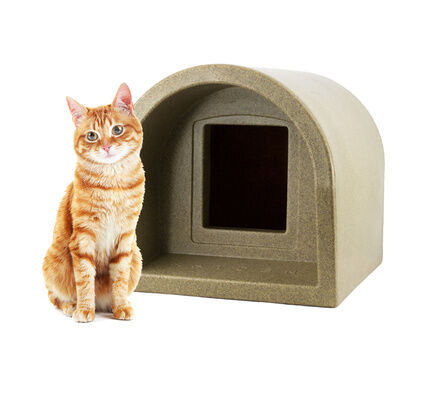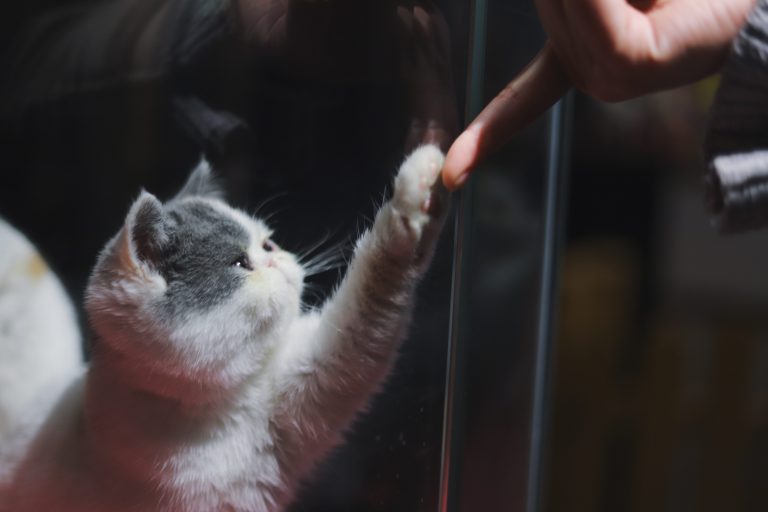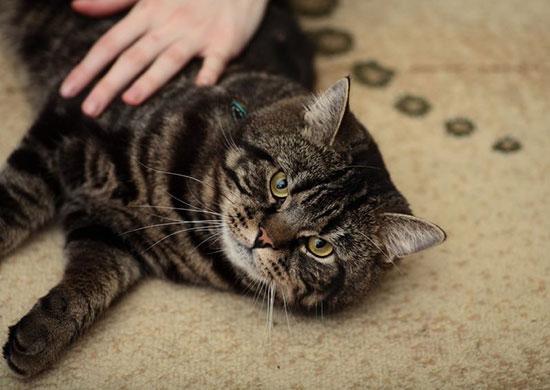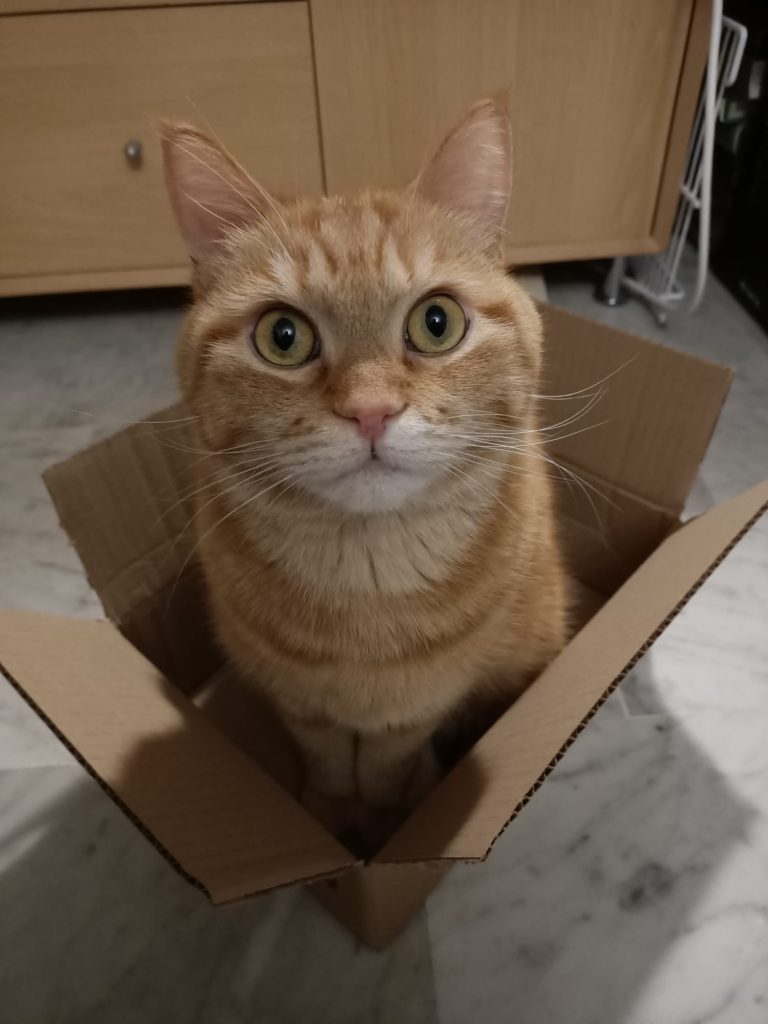Do Cats Have a Sense of Humor?

Yes, cats do have a sense of humor as they exhibit playful behavior and engage in activities that are intended to amuse themselves or their owners. Cats have long fascinated humans with their mysterious and independent nature.
From their elegant demeanor to their elusive behavior, these feline creatures continue to captivate our attention. But amidst their aloof nature, have you ever wondered if cats possess a sense of humor? Can they really understand and appreciate humor? While it may seem like an odd question, observing their playful antics and mischievous behavior can make one wonder if there is something more to their actions.
We will delve into the topic of whether cats have a sense of humor, exploring their behaviors and providing insights into their mysterious world. So, let’s embark on this intriguing journey to unravel the secrets behind a cat’s playful nature and find out if laughter is really part of their repertoire.
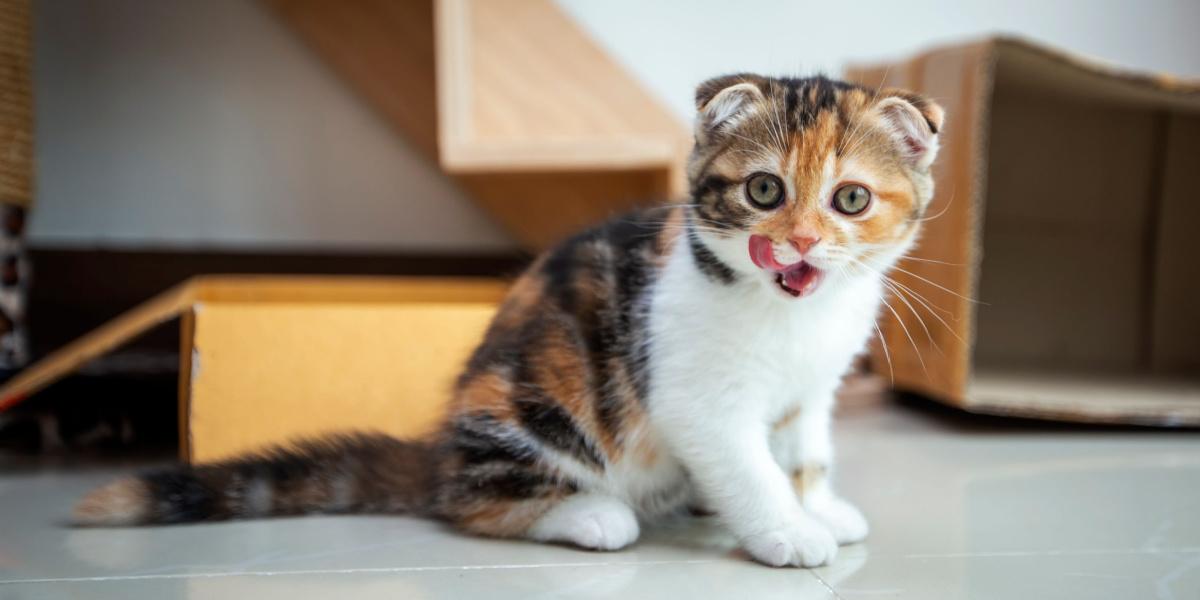
Credit: cats.com
Understanding The Feline Funny Bone
Do cats have a sense of humor? It’s a question that has intrigued humans for centuries. As pet owners, we’ve all witnessed our feline friends engaging in strange and amusing behaviors that make us wonder if they possess a secret comedic side. In this article, we will delve into the captivating world of feline humor and explore the curious ways in which our furry companions express their playful nature.
Cats And Their Mysterious Behavior
Cats have always been enigmatic creatures, known for their independent and aloof personalities. Their fascinating behaviors, such as stalking invisible prey, pouncing on unsuspecting objects, or engaging in synchronized zoomies, often leave us with more questions than answers. While some may dismiss these actions as mere instinct, many experts believe that they are manifestations of a feline sense of humor.
The Concept Of Humor In Animals
When we think of humor, we often associate it with human laughter and jokes. However, the concept of humor expands beyond our species. Animals, including cats, exhibit their own version of comedic behavior, although it may differ from what we perceive as funny.
Evidence Of Playfulness In Cats
Cat owners can attest to their pets’ playful nature. From batting at a dangling string to chasing a laser pointer, cats engage in various activities solely for entertainment purposes. Their ability to find joy in simple objects or engage in teasing behavior with their human companions suggests the presence of a playful sense of humor.
Moreover, cats often exhibit what can only be described as “witty” behavior. Have you ever noticed your cat hiding and then playfully ambushing your feet as you walk by? This mischievous behavior serves no practical purpose, but it certainly brings a smile to your face.
Difference Between Human And Feline Sense Of Humor
While both humans and felines possess a sense of humor, there are notable differences in how we perceive and express it. Human humor relies heavily on language, wordplay, and contextual nuances. Cats, on the other hand, communicate primarily through body language, vocalizations, and physical interactions. Their humor is more instinctual and tied to their natural instincts of play and hunting.
Scientific Studies On Cats And Humor
Curiosity about whether cats possess a sense of humor has led researchers to conduct scientific studies on this subject. While definitive answers have not yet been found, these studies offer intriguing insights into feline behavior. One study conducted at the University of Cambridge suggested that cats can distinguish between positive and negative emotions in human laughter.
Another study conducted by Professor Nicholas Dodman at the Cummings School of Veterinary Medicine at Tufts University suggested that cats have the ability to interpret human facial expressions, which could contribute to their sense of humor.
These scientific studies, while preliminary, hint at the existence of a feline funny bone and highlight the ongoing exploration of this captivating topic.
The Signs Of Cat Humor
Cats are not only adorable and curious creatures, but they also possess a unique sense of humor. While it may be different from our human perception of humor, there are various signs that indicate when cats are feeling amused. By observing their body language, playful behaviors, unique expressions of amusement, laughter-like behaviors, and the role of purring, we can gain a better understanding of how cats express their sense of humor.
Recognizing Humor In Cats’ Body Language
When cats are feeling playful and amused, their body language often gives it away. Some common signs to look out for include:
- Playful stalking behavior with a lowered stance and wiggling tail
- Dilated pupils and alert ears
- Quick twitching or flicking of the tail
- Rolling on their back with paws up in the air
These signals indicate that cats are enjoying themselves and finding something humorous in their environment.
Playful Behaviors As Indicators Of Humor
Cats express their sense of humor through various playful behaviors. Some playful behaviors that suggest amusement include:
- Chasing their tail in circles
- Engaging in “zoomies” – sudden bursts of energy where they run around the house at high speeds
- Playing with toys by batting them around or pouncing on them
- Engaging in mock fighting with other cats or even with their own reflection
These playful antics not only provide entertainment for cats, but they also serve as a way for them to express their sense of humor.
Cats’ Unique Ways Of Expressing Amusement
Cats have their own unique ways of expressing amusement that may differ from our human laughter. Some common ways cats express their amusement include:
- Chirping or trilling sounds
- Gentle paw swipes or playful nips
- Showing relaxed body postures after a playful interaction
- Engaging in social grooming with other cats or even with their human companions
By paying attention to these unique expressions, we can better understand when cats are finding something amusing.
Observing Laughter-like Behaviors In Cats
While cats may not laugh in the way humans do, they do exhibit behaviors that resemble laughter. Some laughter-like behaviors in cats include:
- Rapid blinking or “kitty kisses” – slow blinks that indicate trust and contentment
- Purring, especially in response to positive interactions or when feeling relaxed
- Soft chirping or high-pitched meows
- Showing a relaxed and open mouth with their tongue slightly out
These behaviors often occur during moments of humor or playfulness, suggesting that cats experience a form of laughter.
The Role Of Purring In Cat Humor
Purring is not only a sign of contentment and relaxation for cats, but it can also have a role in expressing humor. Cats often purr when they are engaged in playful activities or when they find something amusing. This gentle vibrating sound is like their way of laughing, showing their enjoyment, and expressing their sense of humor.
While cats may have a different sense of humor than humans, they do possess various signs and behaviors that indicate when they are feeling amused. By recognizing their body language, playful behaviors, unique expressions of amusement, laughter-like behaviors, and the role of purring, we can better appreciate and understand the humorous side of our feline companions.
Exploring The Benefits Of A Funny Cat
Cats are known for their mysterious and independent nature. But have you ever wondered if they have a sense of humor? The answer might surprise you. While cats may not laugh in the same way we do, their playful behavior and mischievous antics indicate that they do have a unique form of humor. In fact, a funny cat can bring numerous benefits to both their well-being and the bond they share with their owners. Let’s delve into the positive effects of humor on cats and discover why having a funny feline companion is so rewarding.
The Positive Effects Of Humor On Cats’ Well-being
Just like humans, cats can experience a range of emotions, from joyfulness to boredom and even stress. Introducing humor into their lives can have a profound impact on their overall well-being. When a cat is engaged in playful activities or has a funny encounter, it stimulates their mind and helps prevent feelings of monotony. This mental stimulation is essential for a cat’s cognitive development and can enhance their problem-solving skills. It also keeps them physically active, contributing to their overall physical health and ensuring they maintain a healthy weight.
How Humor Can Strengthen The Bond Between Cats And Their Owners
When we share a laugh with someone, it creates a sense of connection and strengthens the bond between us. The same applies to cats and their owners. By laughing at their entertaining antics, we establish a positive atmosphere filled with joy and amusement. This shared laughter helps build trust, communication, and mutual affection, deepening the bond we have with our furry friends. It also creates a sense of security for the cat, knowing that their playful behavior is welcomed and appreciated.
Reducing Stress And Anxiety Through Laughter
Laughter is often called the best medicine, and it holds true for our feline companions as well. Cats, especially those prone to anxiety or stress, can greatly benefit from the calming effects of laughter. Funny moments and playful interactions trigger the release of endorphins, which are natural mood boosters. This surge of feel-good hormones can help alleviate stress and anxiety in cats, promoting a relaxed and content state of mind.
The Therapeutic Value Of Funny Cat Videos
In today’s digital age, funny cat videos have become a source of pure delight for many cat lovers. These videos not only bring a smile to our faces but also have a therapeutic effect on both humans and cats. Watching hilarious cat antics can lift our mood, reduce tension, and provide a much-needed escape from everyday stressors. Additionally, these videos can be a valuable tool for cats in need of enrichment. The sights and sounds of other cats engaged in play can stimulate their natural instincts and keep them mentally stimulated, even if they’re unable to venture outdoors.
Humor As A Form Of Enrichment For Cats
Cats are intelligent creatures that thrive on mental and physical stimulation. Introducing humor into their lives can serve as a form of enrichment. Funny toys, interactive play sessions, and comical encounters help cats explore their surroundings and express their natural instincts. When a cat is happy and fulfilled, they are less likely to engage in destructive behavior or develop behavioral issues stemming from boredom. By providing regular doses of laughter and amusement, we can ensure our cats lead fulfilling and enriched lives.
Unraveling The Origins Of Cat Humor
Have you ever wondered if your cat has a sense of humor? While it may seem like cats are serious creatures, you’ll be surprised to learn that they do indeed have a funny bone. But where does their humor come from? Let’s explore the origins of cat humor and discover what factors contribute to their playful and mischievous nature.
Evolutionary Theories Behind Cats’ Sense Of Humor
Cats’ sense of humor can be traced back to their evolutionary ancestors. As natural predators, cats developed survival skills that required cunning, agility, and adaptability. These traits not only helped them hunt for food but also allowed them to engage in playful behaviors, which eventually evolved as their sense of humor. Through generations of selective breeding, cats have retained this innate playfulness, making them masterful pranksters.
The Influence Of Genetics On Feline Playfulness
While genetics play a significant role in determining a cat’s personality, they also contribute to their sense of humor. Certain cat breeds are known for their playful nature, such as the Siamese, Bengal, and Sphynx. These breeds have specific genetic traits that make them more inclined towards playful behaviors, such as high energy levels and a mischievous streak. However, even for mixed breed cats, genetics still play a part in shaping their sense of humor to some extent.
The Impact Of Socialization And Upbringing On Cat Humor
Besides genetics, a cat’s sense of humor is also influenced by their socialization and upbringing. Kittens that are exposed to various stimuli, including toys, interaction with humans, and other animals, develop a broader range of humor. They learn to engage in playful activities, such as chasing objects, pouncing on shadows, and even playing practical jokes on their owners. This early exposure and positive reinforcement shape their sense of humor, making them more prone to lighthearted mischief in their adult lives.
Cultural Variations In The Perception Of Cat Humor
Just like humans, the perception of humor in cats can vary across different cultures. What may be considered amusing in one culture may not be amusing in another. This cultural variation can influence the way cats’ playfulness and antics are interpreted. For example, in some cultures, a cat’s mischievous behavior might be seen as endearing and funny, while in others, it might be viewed as a nuisance. Understanding these cultural nuances can shed light on the different ways cats’ humor is perceived and appreciated worldwide.
Comparing Humor Across Different Cat Breeds
Lastly, it’s fascinating to compare humor across different cat breeds. Each breed has its unique traits and characteristics, which often extend to their sense of humor as well. For instance, the Maine Coon may exhibit a more laid-back and gentle kind of humor, while the Abyssinian might be known for its high-energy antics. Exploring these variations can paint a colorful picture of the diverse and amusing world of feline humor.
Nurturing Your Cat’s Sense Of Humor
Cats are mysterious and fascinating creatures, known for their independent nature and playful dispositions. While it may seem unlikely, cats can indeed have a sense of humor. Understanding and nurturing your feline companion’s funny bone not only strengthens your bond but also contributes to their overall well-being. In this article, we will explore various ways to nurture your cat’s sense of humor, from engaging in interactive play to creating a cheerful environment and incorporating laughter into their daily routines.
Engaging In Interactive Play With Cats
Interactive playtime is an excellent way to tap into your cat’s playful nature and nurture their sense of humor. Whether it’s a simple game of chase, hide-and-seek, or interactive toys that mimic prey, engaging in these activities creates a harmonious balance between exercise and amusement for your feline friend.
Here are a few ideas to get started:
- Feather wands: Cats love the thrill of chasing feathers; dangle a feather wand, and watch your furball pounce and leap with joy.
- Puzzle toys: Introduce puzzle toys that require mental and physical stimulation, such as treat dispensers or interactive puzzles. These toys challenge your cat’s problem-solving skills while providing entertainment.
- Ball pit: Create a small ball pit filled with lightweight balls for your cat to explore. They will have a ball swatting and batting the colorful orbs.
Stimulating Toys And Exercises To Evoke Laughter
Just like humans, cats have unique preferences when it comes to toys and exercises. Discovering the toys that tickle your cat’s funny bone can bring endless entertainment. Stimulating toys and exercises can also help redirect their energy and prevent boredom.
| Toys | Exercises |
|---|---|
| Bell balls | Obstacle courses |
| Talking toys | Agility training |
| Crinkly toys | Jumping exercises |
Creating A Humorous Environment For Cats
A lighthearted and amusing environment can significantly contribute to your cat’s sense of humor. By incorporating humorous elements into their surroundings, you can create an atmosphere that delights and entertains them.
Consider these ideas to add a touch of humor:
- Funny cat-themed artwork: Hang up whimsical cat-themed artwork or photographs that bring a smile to your face and your cat’s.
- Pun-tastic names for accessories: Give their toys and accessories playful names or use cat-related puns for a chuckle. For example, name their scratching post “The Purr-fect Tree” or their food bowl “Fishy Delight.”
Incorporating Laughter And Lightheartedness Into Cat Care Routines
Laughter is contagious, even for our feline friends. By infusing your cat care routines with laughter and lightheartedness, you can create a joyful and stress-free atmosphere that benefits both you and your cat.
Here are some suggestions to add laughter to your daily interactions:
- Tickle their funny bone: Experiment with different types of playful interactions, such as gently tickling their belly or engaging in gentle teasing.
- Practice silly voices: Talking to your cat using silly voices or mimicking their meows can make for a delightful and humorous exchange.
Nurturing your cat’s sense of humor not only brings laughter and joy into your home but also enhances the bond between you and your feline companion. So, why wait? Embrace the humor and embark on an exciting journey filled with laughter and endless amusement with your furball!
Frequently Asked Questions On Do Cats Have A Sense Of Humor?
Do Cats Understand Jokes?
Yes, cats are capable of understanding jokes and humor. They may not express it in the same way as humans, but their playful behavior and reactions to funny situations show that they have a sense of humor.
Can Cats Laugh?
While cats cannot laugh in the same way as humans, they do have their own form of laughter. It comes in the form of a soft purr or a pleased chirp, indicating their contentment and happiness. So, in a way, cats do have their own version of laughter.
Do Cats Find Humans Funny?
Yes, cats can find humans funny and entertaining. They often find amusement in our actions and behaviors, such as clumsy movements or funny facial expressions. Cats may show their enjoyment by purring, rubbing against us, or simply observing with a curious and amused look.
Conclusion
Cats are undeniably fascinating creatures, and their playfulness often invokes laughter in their owners. Though it may be difficult to determine if cats possess a sense of humor in the same way humans do, their mischievous antics and ability to respond to stimuli with joy suggest a certain lightheartedness.
Whether it’s their silly antics or their ability to bring laughter to our lives, cats undoubtedly have a way of adding a touch of humor to our days. So, next time you catch your feline friend doing something hilarious, remember, they might just be trying to make you smile.

